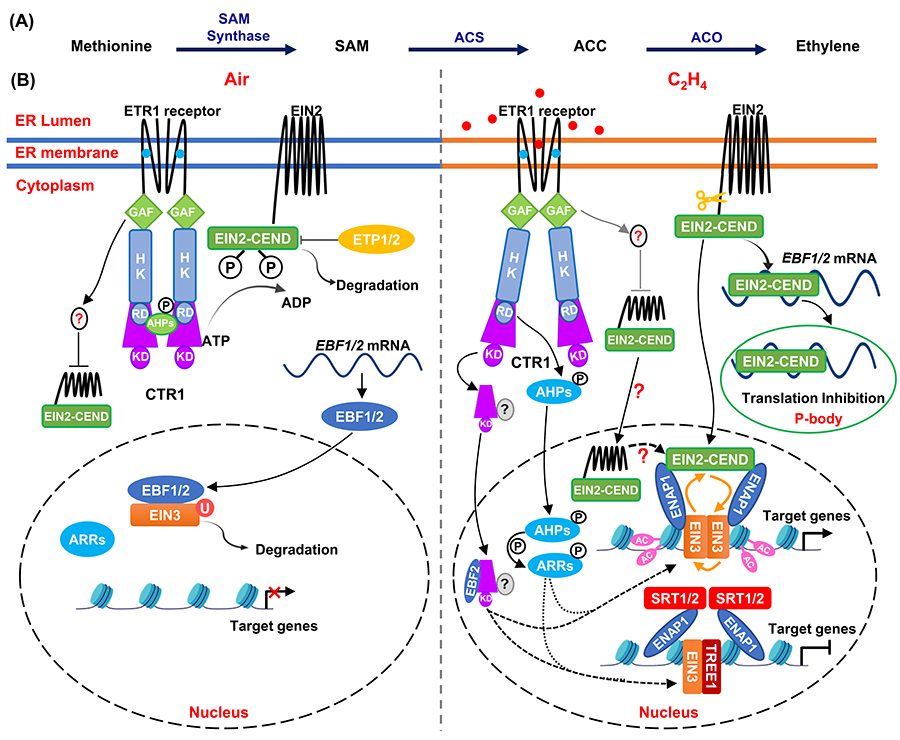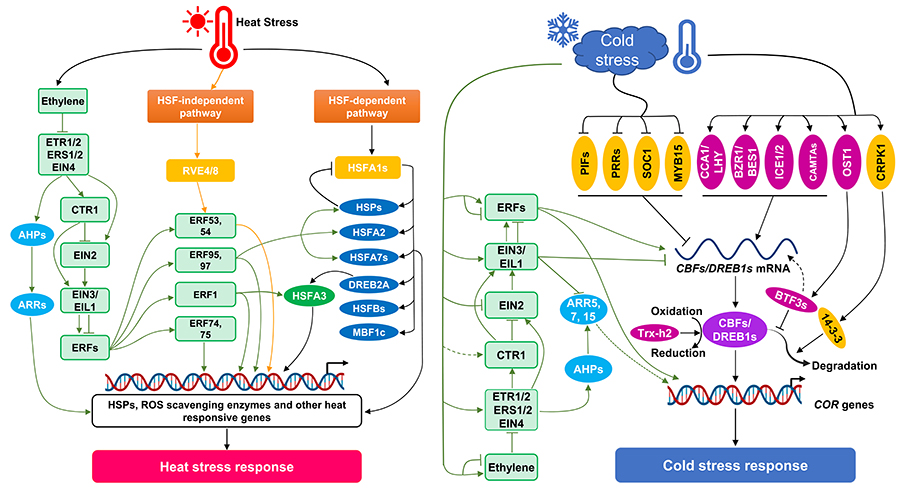
Tea Institute Reviews the Role of Ethylene in Plant Temperature Stress Response
Source: Tea Research Institute, Chinese Academy of Agricultural Sciences
Recently, the Innovation Team of Tea Plant Genetics and Breeding of CAAS’s Tea Research Institute (TRI) has comprehensively reviewed the role of ethylene in plant temperature stress response. The paper was published in Trends in Plant Science.
Temperature influences the seasonal growth and geographical distribution of plants. Heat or cold stress occur when temperatures exceed or fall below the physiological optimum ranges, resulting in detrimental and irreversible damage to plant growth, development, and yield. Ethylene, a gaseous phytohormone, plays a crucial role in plant development and various stress responses. Recent studies have revealed that both heat and cold stress affect ethylene biosynthesis and signaling pathways in many plant species. In this review, scientists from TRI summarized recent advances in understanding the role of ethylene in plant temperature stress responses and its crosstalk with other phytohormones. Additionally, potential strategies and knowledge gaps that need to be adopted and filled for optimizing ethylene response to develop temperature stress-tolerant crops were discussed.
This work received support from the National Natural Science Foundation of China, the National Key R&D Program of China, the Central Public-interest Scientific Institution Basal Research Fund, the Agricultural Science and Technology Innovation Program from the Chinese Academy of Agricultural Sciences, and the Zhejiang Science and Technology Major Program on Agricultural New Variety Breeding-Tea Plant.
The article can be accessed at:
https://www.cell.com/trends/plant-science/fulltext/S1360-1385(23)00081-X
By Huang Jianyan (jyhuang@tricaas.com)

Figure 1. Overview of the ethylene biosynthesis and signaling pathway.

Figure 2. Proposed model for the ethylene-mediated temperature stress response.